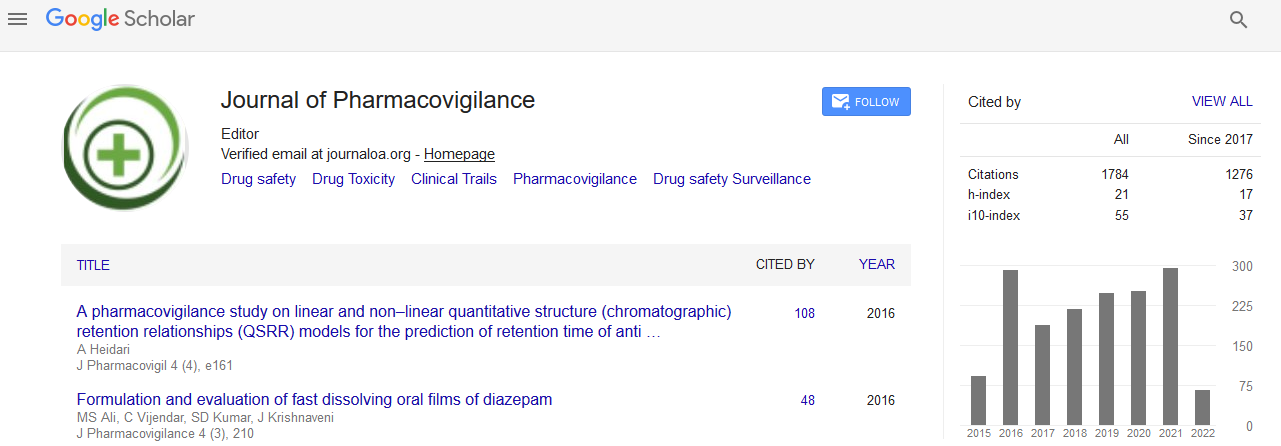Indexed In
- Open J Gate
- JournalTOCs
- The Global Impact Factor (GIF)
- RefSeek
- Hamdard University
- EBSCO A-Z
- OCLC- WorldCat
- Publons
- Euro Pub
- Google Scholar
Useful Links
Share This Page
Journal Flyer

Open Access Journals
- Agri and Aquaculture
- Biochemistry
- Bioinformatics & Systems Biology
- Business & Management
- Chemistry
- Clinical Sciences
- Engineering
- Food & Nutrition
- General Science
- Genetics & Molecular Biology
- Immunology & Microbiology
- Medical Sciences
- Neuroscience & Psychology
- Nursing & Health Care
- Pharmaceutical Sciences
Abstract
Efficacy of Trigger Tool in Identification of Suspected ADR in Secondary Hospital in Cape Verde
Carla Djamila Reis, Calida Etzana Veiga and Jailson Jesus Martins
Background: Adverse drug events (ADEs) are a major health and economic problem. There is no information regarding incidence of ADEs in Cabo Verde and trigger tools are an efficient active data collection method.
Objective: To identify efficacy of the trigger tool in identification of suspected ADRs.
Method: The Global Trigger Tool (GTT) developed by the Institute for Healthcare Improvement (IHI) was used for a retrospective review of medical records. The ADE trigger tool included 21 triggers. 383 records were randomly selected, 190 in a first period and 194 in second period. Hospitalization for less than 48h, time spent in intensive care unit and lack of drug administration records was excluded.
Results: 287 triggers and 182 ADEs were found. Medical records with at least one trigger were 67.7% and 42.7%, respectively. In the same periods, 28.4% and 19.6% of total patients presented at least one ADE but it was 50% and 67.9% when calculating for the records with a trigger. In both periods, most common and robust trigger was nurse description. The least robust were abrupt medication stop and use of antiemetic drug.
Conclusion: The trigger tool had a good performance detecting ADE. The GTT is not feasible as routine PV method but an option to complement spontaneous notification. Further studies are needed using prospective method and extended period.


